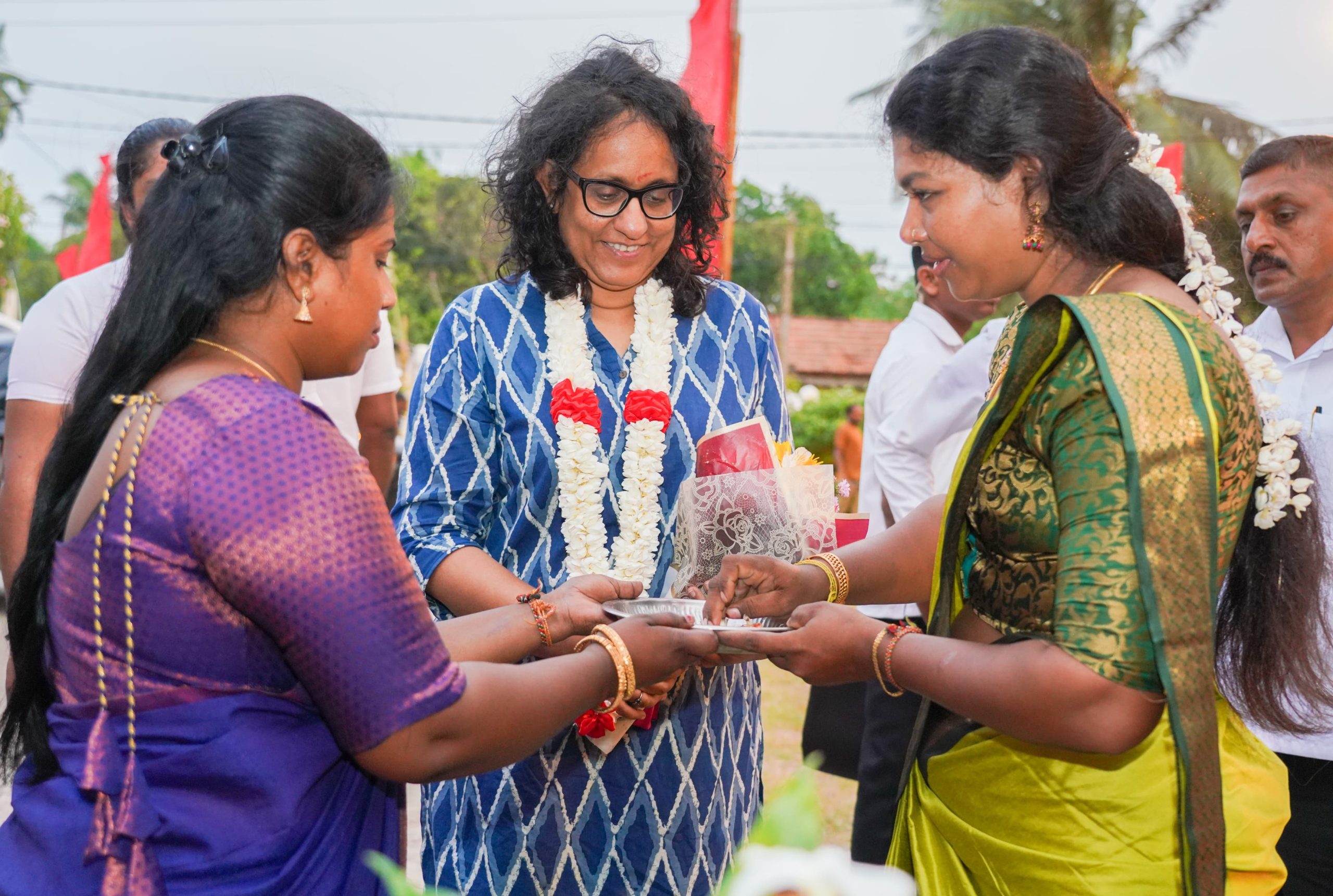News
Study supports theory that dragonflies migrate across the Indian Ocean

Can dragonflies migrate thousands of miles across the Indian Ocean, from India via the Maldives to Africa, and back again? An international research team led by Lund University in Sweden has used models and simulations to find out if the hypothesis could be true, said a report filed by Phys.org yesterday.
It said: In 2009, marine biologist Charles Anderson put forward a hypothesis after observing globe skimmer dragonflies (Pantala flavescens) on the Maldives, that had flown in from what he assumed was India. When they flew off again, it was towards East Africa. Now, 12 years later, a group of researchers decided to investigate his claim.
Globe skimmer dragonflies are too small to be fitted with transmitters. Instead, the researchers examined its physiological aspects and calculated how long a globe skimmer dragonfly could stay airborne using the energy that can be stored in its body. In addition, the researchers used meteorological wind models to determine if there are winds that can facilitate the migration in both directions.
“Our study shows that this migration from India to East Africa is actually possible. However, the globe skimmer dragonfly can’t manage it using only the fat it can store in its body. It also requires favorable winds and these are present during certain periods of the year,” says Johanna Hedlund, a biology researcher at Lund University.
According to the simulated migration experiments using wind models, about 15 percent of the dragonflies could manage the migration from India to Africa in the spring. In the autumn, 40 percent could make the same journey in the opposite direction.
Johanna Hedlund and her colleagues consider it impressive that dragonflies can do this at all. Even more impressive is the fact that the globe skimmer dragonfly migration across the Indian Ocean is the longest in the animal kingdom in relation to an animal’s size.
“We have got a lot closer to solving the mystery of how a tiny dragonfly, which only weighs 300 milligrams, can cross 2,000 kilometers of open sea,” says Johanna Hedlund.
Other animals also rely on favorable wind conditions when they migrate. Two examples are the amur falcon and the Jacobin cuckoo, which also fly across the Indian Ocean. The researchers behind the study in question warn that climate change may affect the chances of these birds and the globe skimmer dragonfly in the future. There is a risk that wind patterns will change when the water surface gets warmer.
The researchers consider that the study is important in several ways. It creates an understanding of the distances that one of the animal kingdom’s smallest migrants can cover, it increases knowledge about how migratory animals can spread diseases, and it also contributes to ecosystem services at widespread locations around the world.
Latest News
Temporally pause rooftop solar during day time from 13th to 21st April -CEB

The Ceylon Electricity Board has appealed to all rooftop solar owners across the country to voluntarily switch off their solar systems during day time hours (until 3pm each day) from April 13th to 21st to prevent partial power outages or nationwide blackouts which may occur.

News
Government remains committed to ensuring peace and stability across the country – PM

The Prime Minister Dr. Harini Amarasuriya stated that the people of Sri Lanka should no longer be burdened by conflict and the Government remains committed to ensuring peace and stability across the country, with the government and the public service must discharge their duties to meet the needs of the people.
The Prime Minister made these remarks while addressing public gatherings held in Velanai, Nallur, and Vadamarachchi.
The Prime Minister said that:
“There are numerous issues regarding infrastructure development in the Northern Province ranging from roads, drinking water supply, agriculture, and unemployment, to education and health sectors.
Many of these development tasks fall under the responsibility of local governments and provincial councils that represents your areas. However, these responsibilities have not been properly discharged.
While it is said that the issues raised in the North and East were caused by the war, 16 years have passed since the end of the war. What real change has taken place? Have the lives of the people in these areas has improved?
Although the central government allocates funds to provincial governing bodies, there should be a transparent mechanism in place to ensure that these funds are properly utilized for the relevant projects.
On May 6th, you will hold the decisive right to elect the local government closest to you that will work to uplift your lives and develop your communities. Elect representatives who are committed to serving the people, and free of fraud and corruption.
The government is actively participating in lifting the country from its fallen state and to overcome the current economic challenges. We accept that there is a long way to go. The prices of goods are still high but the government is currently working towards a change, and the people will receive the benefits in the near future.
Measures have been taken to increase the basic salary of public servants from this year’s Budget. The public service must commit to discharging duties with dedication. This must be not only a people’s government, but also a public service that belongs to the people.
Even after the independence, this country has seen much bloodshed and conflict. The people have suffered greatly as a result. The government is determined to ensure that such a situation never arises again. Therefore, the government is committed to fostering peace within the country.”
The event was attended by Minister of Fisheries Ramalingam Chandrasekar, along with several Members of Parliament and local representatives in the North.
[Prime Minister’s Media Division]
News
Focus on streamlining Research and Development activities related to defence sector

A meeting organized by the National Initiative for Research & Development Commercialization (NIRDC) was held on Thursday (10) at the Presidential Secretariat to streamline and commercialize research and development activities in the defence sector.
Participating institutions included the Centre for Defence Research and Development under the Ministry of Defence, the Sri Lanka Army, Navy and Air Force, the General Sir John Kotelawala Defence University and the Research and Development Division of the Sri Lanka Police.
The NIRDC Unit, established under the Presidential Secretariat, aims to accelerate national development by facilitating investment opportunities to commercially apply completed or nearing completion research projects from both public and private institutions.
Defence institutions play a critical role for the progress of technology and science in relation to national security and development. Acknowledging this importance, the meeting was chaired by Senior Advisor to the President on Science and Technology, Professor Gomika Udugamasuriya.
During the meeting, it was discussed in detail regarding the completed and on-going research and development projects within the defence sector, as well as those planned for the future. Special attention was given to identifying opportunities for collaboration among research and development units, enhancing innovation capabilities, and exploring ways to share resources effectively.
The discussion focused on identifying opportunities for collaboration between research and development units relevant to these sectors, enhancing innovation capabilities and exploring ways to share resources effectively. It also examined possible steps to strengthen coordination between civil and defence research institutions. The discussion concluded productively, with several innovations identified that have the potential for future commercialization.
The event was attended by Senior Additional Secretary to the President (Finance and Economic Affairs) . Russel Aponsu, NIRDC Director General Dr. Muditha D. Senarath Yapa, Director (Investments) . Idunil Gunathilaka along with other officials.
[PMD]
-

 Business6 days ago
Business6 days agoColombo Coffee wins coveted management awards
-

 Features7 days ago
Features7 days agoStarlink in the Global South
-

 Features2 days ago
Features2 days agoRobbers and Wreckers
-

 Features4 days ago
Features4 days agoSri Lanka’s Foreign Policy amid Geopolitical Transformations: 1990-2024 – Part III
-

 Features7 days ago
Features7 days agoModi’s Sri Lanka Sojourn
-

 Midweek Review4 days ago
Midweek Review4 days agoInequality is killing the Middle Class
-

 Features6 days ago
Features6 days agoSri Lanka’s Foreign Policy amid Geopolitical Transformations: 1990-2024 – Part I
-

 Features5 days ago
Features5 days agoA brighter future …











